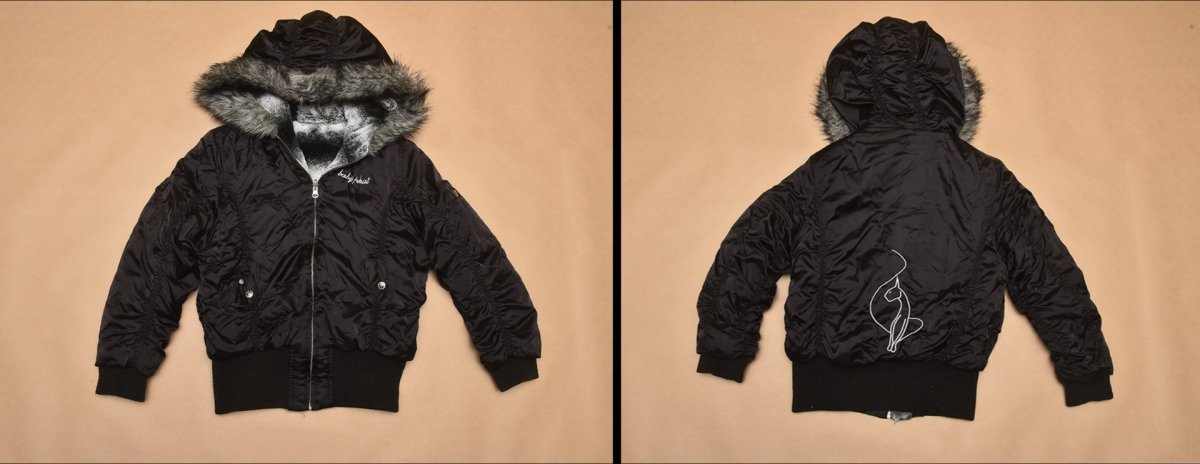Winnipeg police say the remains of at least two Indigenous women believed to have been the victims of a serial killer are likely at a landfill north of the city.


Police Chief Danny Smyth held a press conference Tuesday to clear up “speculation” that the remains were at the Brady Road landfill, in south Winnipeg.

Police also released more details of their decision to not search the Prairie Green landfill at the press conference, held just hours after family of one of the women shared their disappointment at Parliament Hill Tuesday.
Smyth had said Friday that remains of victims of alleged serial killer Jeremy Skibicki are believed to be at a landfill, but said no search is planned — due in part to the amount of time that has passed and the fact that there’s no known starting point for the search.

In May Skibicki was charged with the murder of 24-year-old Rebecca Contois, whose partial remains were found in a garbage bin near an apartment building.
Police later found the rest of her remains in the Brady Road landfill in the city’s south end.
Skibicki is now facing additional murder charges in the deaths of Morgan Harris, 39, Marcedes Myran, 26, and Buffalo Woman, whose identity has yet to be determined. His lawyer has told Global News he will plead not guilty to all charges.
Cambria Harris said Tuesday in Ottawa that she shouldn’t have to beg for officials to search for her mother.

“My mother didn’t pass away with a home, so let’s pay her the respect that she deserves by finally giving her one that’s not a resting place at the Prairie Green landfill.”
Harris said officers sat down with her this week and shared a presentation outlining the reasons the search is unfeasible.
“It was basically to say we failed you and we’re not going to do anything, and I think that’s disgusting.”
Search not feasible: police
Inspector Cam MacKid of the WPS forensics unit, said investigators believe the remains of Myran and Harris are likely at Prairie Green Landfill, but the whereabouts of Buffalo Woman’s remains is still unknown.
MacKid said police won’t be able to search the Prairie Green Landfill site, citing safety concerns for officers and telling reporters too much time has passed since the women were killed, among other logistical issues.
He said homicide officers told the forensics team on June 20 that they believed additional remains had been disposed of at the Prairie Green landfill a month before.
Because of the time gap, police had no starting point to search the 1.6-hectare site, where trash is compacted with heavy mud at a depth of about 12 metres.

MacKid said during this time, 10,000 truckloads of refuse were dumped at the landfill and 1,500 tons of animal remains were deposited.
He added that given the compacting and the passage of time, any human remains might not be discernible from animal remains.
“If we were to search that site given the compaction that went on in the truck at the site, the decomposition that occurs over time, I guess the question to be asked — is it impossible? Nothing’s impossible,” MacKid said.
“But is it likely that even if remains were found that they would be discernible from animal remains? That’s a tough question.”

MacKid said the manageable conditions police worked with in locating the remains of Contois did not present themselves in the search for the other women.
In the case of the Brady Road landfill, he said, refuse is not compacted, police were able to secure the site within hours of finding Contois’ partial remains and they weren’t working against other remains and hazardous minerals.
Police were also able to rely on GPS tracking in garbage trucks and heavy equipment at the landfill.
The decision was not an easy one for the officers who have spent months on the case, he added.
“Our investigators are emotionally invested in the case, they take it home with them,” MacKid said.
“We’re working around the clock to ensure that resolution is what it should be.”
Family vows to search
Kera Harris said her family is prepared to search on their own for her mother, calling the police’s reasons “meaningless excuses.”
“These are people who you are leaving alone in the landfill. These are human beings. How can you even fathom the idea to leave them there?” she said in Ottawa.
“These women are deserving of a proper resting place not to be left alone in a landfill in the dead of winter. If you want to respect and honour them, stop making excuses as to why you can’t find them.”
Contois lived in Winnipeg and was a member of the O-Chi-Chak-Ko-Sipi First Nation, also known as Crane River. Harris and Myran also lived in Winnipeg and were both members of Long Plain First Nation. Police say the three were killed in May.
Buffalo Woman is also believed to be Indigenous. Police believe she was killed in March.
Smyth said police did not want the searches to end this way for the families.
“We acknowledge that the families are heartbroken. We acknowledge that they’re angry. We acknowledge that a lot of people are angry. We’re doing our best to bring justice to the families, and that’s what we hope to do.”
Smyth said investigators are now focusing on preparations for the upcoming trial and the ongoing work of identifying Buffalo Woman.
Last week police released photographs of a jacket similar to one they believe Buffalo Woman was wearing.
The jacket has a fur collar and is reversible with one all-black side and one side with black and white stripes. There is a black and white pattern along with the words “baby phat” and a cat-like logo on the front and back of the jacket.
Police have previously said Buffalo Woman is likely in her mid 20s with an average build.
Anyone with information is asked to call the homicide unit at 204-986-6508 or Crime Stoppers at 204-786-TIPS.
–With files from The Canadian Press











Comments